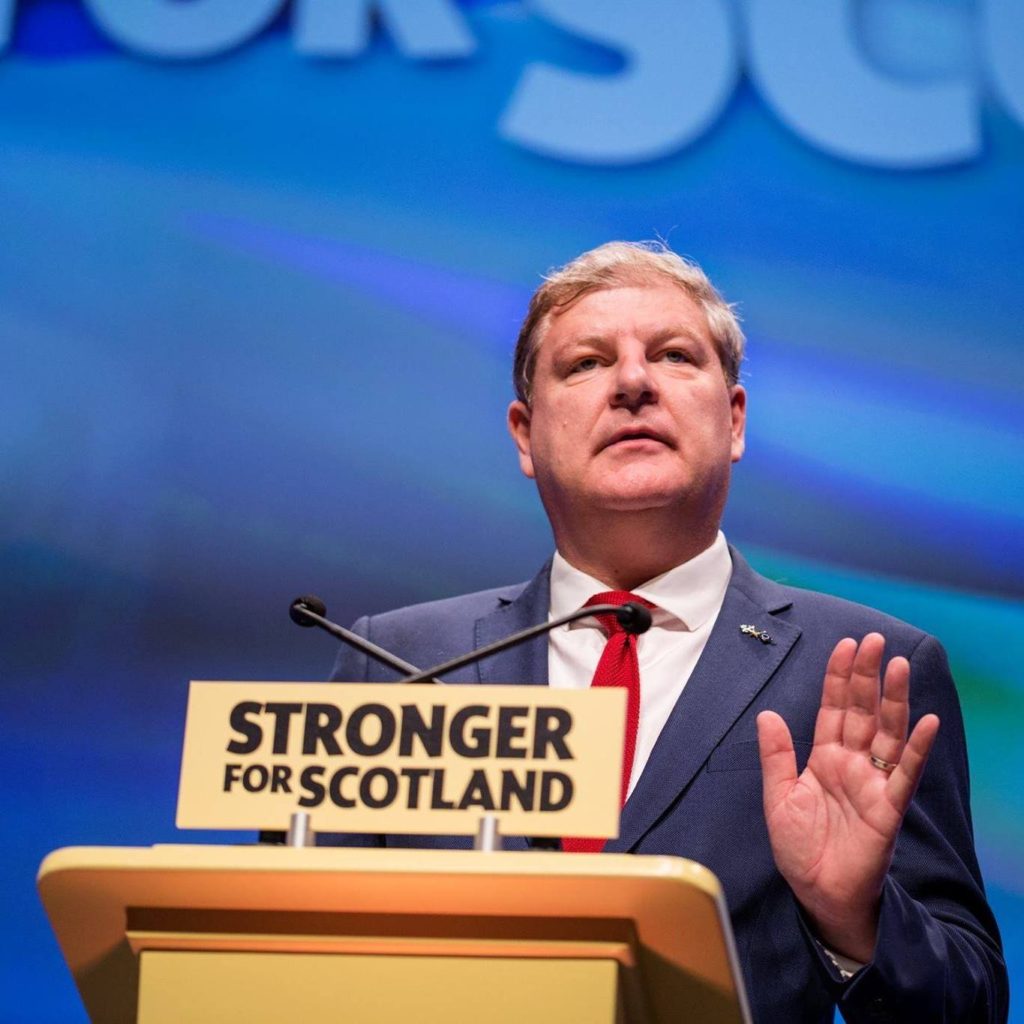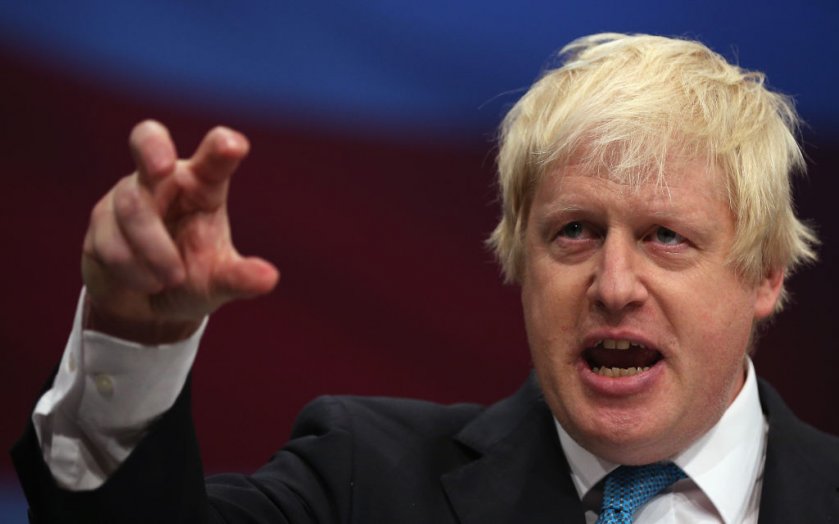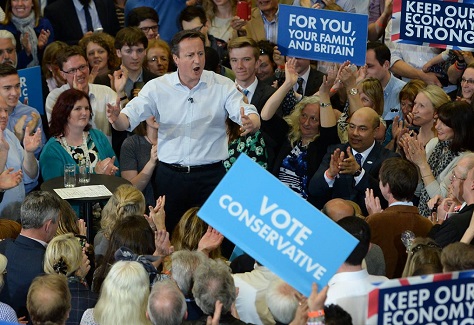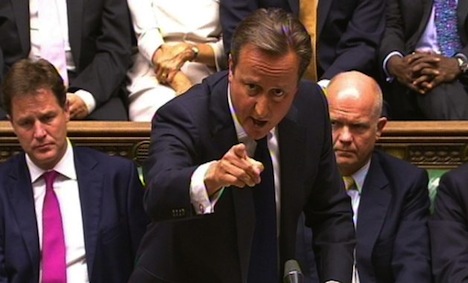
Throughout the night, Suffragio will be live-blogging the results of the United Kingdom’s general election to elect all 650 members of the House of Commons on a constituency-by-constituency basis.![]()
BBC Exit Poll
10:00 pm BST, 5:00 pm ET
Conservative Party — 314 (down from 330)
Labour Party — 266 (up from 229)
Scottish National Party — 34 (down from 54)
Liberal Democrats — 14 (up from 9)
UKIP — Zero seats.
If these results are true, the Tories are in for an awful night. Theresa May called a snap election to boost her majority. She’s not only lost seats, but this result would mean a hung parliament and, more likely than not, make Jeremy Corbyn the next prime minister. With this result, however, it is very unlikely that we will know anything about the composition of the next government anytime soon.
10:36 pm BST, 5:36 pm ET
Note that the UK pound has dropped from $1.29 to $1.27 upon news of the exit poll showing that the Conservatives have lost their majority. Spectacular. Feels much like Brexit.
This is all still way too close to call anything.
A 10-seat swing could mean the difference between government and opposition.
On these numbers, though, it’s possible that neither Conservatives nor Labour could gain a majority (even if it means , which means a more unstable minority government or even a fresh election later this year (and it seems unlikely that May will stick around to lead the Tories — instead, foreign secretary Boris Johnson or Brexit secretary David Davis. Of course, a second 2017 election would take place as the two-year clock continues to tick from May’s decision in March to invoke Article 50, depriving the United Kingdom of precious negotiation time vis-à-vis Brexit when it will be focused on internal domestic politics.
If you add the Labour projection to the Liberal Democratic, Green, SNP, Plaid Cymru and some of the republican MPs from Northern Ireland, it’s still difficult to see how Corbyn gets to a majority.
But it’s clear that some leading Tory figures, like home secretary Amber Rudd, could be in trouble. Though it was clear that May’s campaign stumbled, the final polls (save Survation) showed the Tories with anywhere from a 1% to 12% lead. This seems to indicate that youth turnout was higher, boosting Labour’s surge.
One question is how the Scottish National Party seems to have done so poorly — it’s set to lose 22 seats from the 56 seats it won in 2015. That’s even worse than the Tories. If that holds, I’ll be curious to see if the SNP lost to Ruth Davidson’s Conservatives or to a last-minute Labour surge. If the former, it means that Labour has done incredibly well in England.
* * * * *
Newcastle upon Tyre North
11:06 pm BST, 6:06 ET
The first seat to report — and not in Sunderland! Note that this a constituency that swung to Labour in 2015, and it’s a predictably safe Labour seat in the northeast. It’s also a constituency that held wide appeal for potential UKIP voters. What’s interesting is that the UKIP (and even the Liberal Democrat and Green) vote has collapsed from two years ago. So while Labour won nearly 5,000 more votes than in 2015, the Tories have also won nearly 2,500 more votes from the last election.
Labour — 24,071 (19,301)
Conservative — 9,134 (6,628)
LibDem — 1,812 (2,218)
UKIP — 1,482 (5,214)
Green — 595 (1,724)
* * * * *
Houghton and Sunderland South
11:15 pm BST, 6:15 ET
Again, a reliable Labour seat, and Bridget Phillipson will hold onto this northeastern seat. But the Tory swing here is larger than the Labour swing. Not a great sign for Labour’s hopes tonight, because it seems to show that so many of those UKIP voters, some of which might have once voted Labour, have now switched over to the Conservative Party. In this constituency two years ago, UKIP placed second. Still too murky to know what, exactly, has happened today on a national (or even England-wide) basis.
Labour —24,665 (21,218)
Conservative —12,324 (7,105)
UKIP —2,379 (8,218)
LibDem — 908 (791)
* * * * *
Newcastle upon Tyne East
11:58 pm BST, 6:58 ET
Opposition chief whip Nick Brown holds this seat, with a much improved margin. Labour will take solace in this result, the Tories less.
Labour — 28,127 (19,378)
Conservative — 8,866 (6,884)
LibDem —2,574 (4,332)
UKIP — 1,315 (4,910)
* * * * *
North Swindon
12:00 pm BST, 7:00 ET
Tories are swinging up 3%, Labour is swinging up 11%. Conservative Justin Tomlinson holds the seat, but another data point in favor of a strong night for Labour. This is the first seat announced from southwestern England, so it’s perhaps more meaningful than the previous Newcastle and Sunderland results.
Conservative — 29,431 (26,295)
Labour — 21,096 (14,509)
LibDem — 1,962 (1,704)
UKIP — 1,564 (8,011)
* * * * *
Washington and Sunderland West
12:10 pm BST, 7:10 ET
As in Sunderland Central and Newcastle Central, it’s a bigger swing to the Tories than to Labour. Sharon Hodgson will still hold the seat with a strong majority, though. The regional picture seems to be showing that the Tories are taking more than their fair share of northeastern UKIP voters, even as Labour is improving on its 2015 showing. This is yet another seat where UKIP finished second (above the Tories) in the last election, and it’s still held onto nearly 7% of the constituency vote in 2017.
Labour — 24,639 (20,478)
Conservative — 11,699 (7,033)
UKIP — 2,761 (7,321)
LibDem — 961 (993)
* * * * *
Kettering
12:30 pm BST, 7:30 ET
In the center of the country, Northamptonshire, Philip Hollobone has held this seat since 2005. Hollobone is a very euroskeptic MP, and while there’s a 6% swing to the Tories, there’s an 11% swing to Labour. So far, all holds. No gains for any party — yet.
Conservative — 28,616 (24,467)
Labour — 18,054 (11,877)
LibDem — 1,618 (1,490)
* * * * *
Nuneaton
12:30 pm BST, 7:30 ET
UKIP is down 11%, now the Tories and Labour are both up 6%. Marcus Jones will hold this seat.
Conservative — 20,827 (23,755)
Labour — 19,016 (15,945)
UKIP — 1,619 (6,582)
LibDem — 914 (816)
* * * * *
Broxbourne
12:40 pm BST, 7:40 ET
This is the first seat in the southeast, and it’s a great story for Labour (as opposed to the story in the north). The Tories, and Charles Walker, will hold this seat, but Labour will have seen a double-digit swing. UKIP came in second place here in 2015, and their collapse has helped Labour far more than Conservatives.
Conservative — 29,515 (25,797)
Labour — 13,723 (8,470)
LibDem — 1,481 (1,467)
UKIP — 9,074 (848)
* * * * *
Darlington
12:57 BST, 7:57 ET
Well. Both the Tories and Labour are up 8%. This is a good result for the Tories, but not nearly the kind of result May needed for a landslide. UKIP, of course, is down 10%. Another seat in the North East in county Durham, and Jenny Chapman holds.
Conservative — 22,681 (17,637)
Labour — 19,401 (14,479)
UKIP — 1,180 (5,392)
LibDem — 1,031 (1,966)
* * * * *
Wrexham
1:08 BST, 8:08 ET
This is the first result from Wales, and Ian Lucas will hold this seat. The swing here is just as much to Labour as it was to the Tories. UKIP didn’t field a candidate, so its 5,072 votes from 2015 were up for grabs. Notably, the Welsh nationalist Plaid Cymru has lost some of its vote share from 2015, too. So that means that UKIP voters have split between the two major parties.
Labour — 17,153 (12,181)
Conservative — 15,321 (10,350)
PC — 1,753 (2,501)
LibDem — 865 (1,735)
* * * * *
Rutherglen & Hamilton West
1:18 BST, 8:18 ET
This is the first seat from Scotland, and it’s also the first Labour gain! Ged Killen here will take the seat from the Scottish National Party, in line with exit polling that shows it will be a very bad night for the SNP. Notably, though, while the SNP swing is down 16%, Labour swung up just 2%, while the Tories swung up 12%. That’s good news for both of the two unionist parties, perhaps, and it shows that the SNP is not only fighting a two-way race against unionists in Ruth Davidson’s Conservatives, but a four-way race with the Liberal Democrats and Labour as well.
* * * * *
Tooting
1:27 BST, 8:27 ET
Tooting is the first constituency from London, and wowza. Rosena Allin-Khan has retained the seat from the 2016 by-election that Sadiq Khan vacated when he became London’s mayor. A big swing to Labour, nonetheless, from the 2015 election in a constituency that the Tories thought they might steal at the beginning of the election. The Liberal Democrats are doing better here than in 2015, too.
Labour — 34,694 (25,263)
Conservative — 19,236 (22,421)
LibDem — 3,057 (2,107)
Green — 845 (2,201)
* * * * *

Paisley & Renfrewshire South
1:32 BST, 8:32 ET
Mhairi Black, the youngest MP at just 22, will hold this seat, finally some good news for the SNP tonight.
* * * * *
Vale of Clwyd
1:44 BST, 8:44 ET
Here’s the first Labour gain in Wales. Chris Ruane will take back the seat he lost to James Davies in 2015 by a health majority of nearly 2,500. Again, the Liberal Democrats are down, Plaid Cymru was down 3%, and UKIP was nonexistent (after winning 4,577 in the last election).
Labour — 19,423 (13,523)
Conservative — 17,044 (13,760)
PC — 1,551 (2,486)
LibDem — 666 (919)
* * * * *
Putney
1:49 BST, 8:49 ET
Justine Greening, the sitting education secretary, has won her seat in Putney, another London seat. But whereas she won by a margin of 53.8% to 30.0% in 2015, she’ll only win by a margin of 44.1% to 40.8%. Notably, as in Tooting, the Liberal Democrats are winning more of a very reliably pro-Remain vote, and they will have nearly doubled their support from the last election. Another good data point for Labour in London. The Greens are also down sharply from 2015.
Conservative — 20,679 (23,018)
Labour — 19,125 (12,838)
LibDem — 5,448 (2,717)
Green — 1,107 (2,067)
* * * * *

Moray
2:21 BST, 9:21 ET
This is a huge win for the Tories. After winning Angus, they have now won Moray from Angus Robertson, the deputy SNP leader. And it wasn’t close, a 16% swing to the Tories and a 11% swing down for the SNP. With 48% of the vote, Douglas Ross nearly won an absolute majority. A great night so far for the Tories, who have taken two seats from the SNP (and won a swing of 12% from the SNP in the third seat that Labour won).
Conservative — 22,637 (22,637)
SNP — 15,319 (24,384)
Labour — 5,208 (4,898)
LibDem — 1,078 (1,395)
* * * * *
Battersea
2:21 BST, 9:21 ET
This is another London constituency, and it’s a 10% swing to Labour. Jane Ellison, who easily won in 2015, has lost to Labour’s Marsha de Cordova.
Labour — 25,292 (18,792)
Conservative — 22,876 (26,730)
LibDem — 4,401 (2,241)







